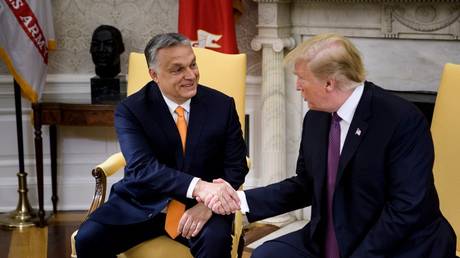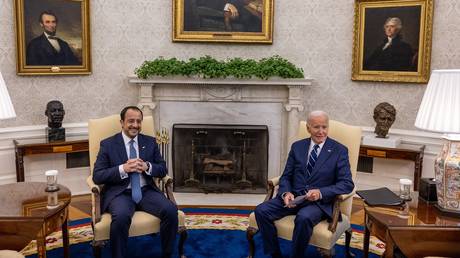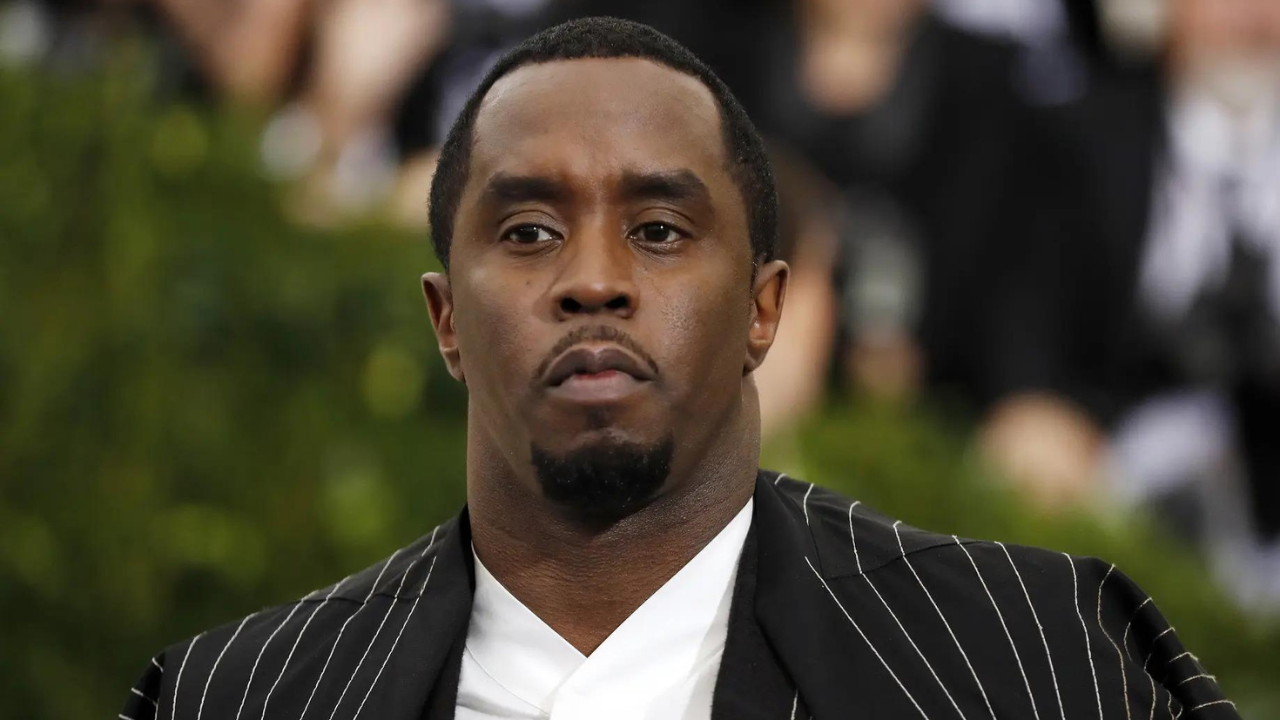ARTICLE AD BOX
Hungarian PM Viktor Orban also said that countries striving to remain sovereign are facing growing pressure to join various blocs
The era of Western domination has ended and a new world order is emerging, Hungarian Prime Minister Viktor Orban has said. He added that Budapest will maintain its independent path despite increasing pressure to align itself with larger blocs.
The Hungarian prime minister has been a vocal critic of Western policies on the Ukraine conflict, denouncing the sanctions on Russia as counterproductive and weapons deliveries to Kiev as dangerous and escalatory. Budapest has also called on the belligerents to negotiate an end to the hostilities to avoid further bloodshed.
Speaking at an annual ambassadorial meeting on Tuesday, Orban said that the general consensus now is that Western hegemony is over, according to the news agency MTI. He urged Hungarian diplomats to constantly monitor and analyze evolving trends as a new world order takes shape.
Orban said that his country, while being part of the European Union and NATO, would continue to pursue sovereign policies. He explained that rigid geopolitical groupings leave too “little room for maneuver” for nations such as Hungary.
Read more NATO state ‘betting’ on Trump victory – PM
NATO state ‘betting’ on Trump victory – PM
On Monday, Orban described the Ukraine conflict as a “proxy war,” claiming that “everyone” understands this and that the West has no chance of winning it. To support his assertion, he cited Ukraine’s heavy dependence on foreign defense aid.
According to the Hungarian leader, “there is only one solution: peace negotiations must begin sooner or later,” and involve the US in some capacity. He also criticized the EU’s failure to seize on the opportunity to seal a peace deal between Kiev and Moscow early in the conflict, according to Russia’s TASS.
Over the weekend, Hungarian Foreign Minister Peter Szijjarto warned that the “later a ceasefire is called and negotiations begin, the worse it will be for Ukraine.”
Last month, Orban reportedly told members of his ruling Fidesz-KDNP parliamentary faction that in light of the growing financial burden on European nations owing to the Ukraine conflict “almost nobody believes” Kiev will win.
.png)
 8 months ago
4
8 months ago
4








 English (US)
English (US)